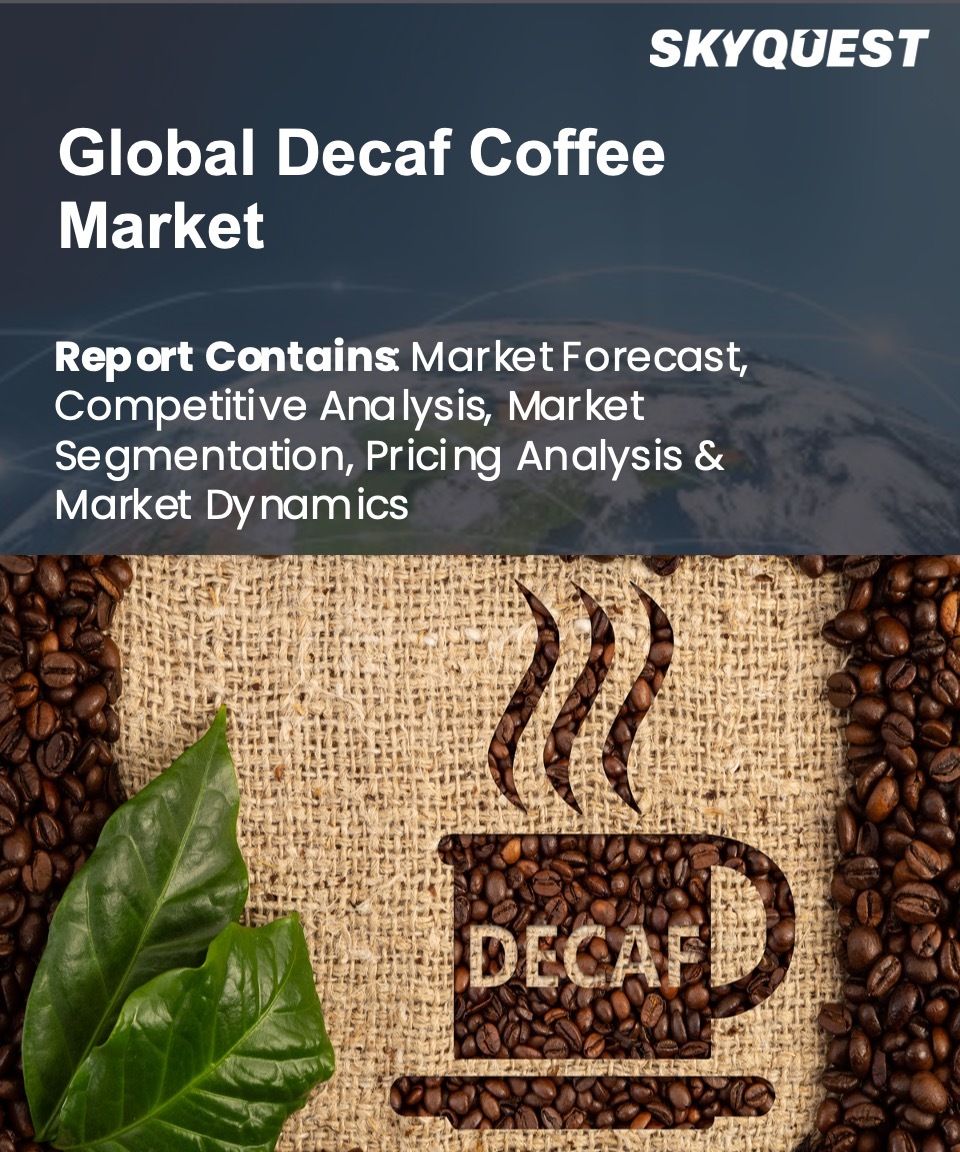
Report ID: SQMIG30F2041

Report ID:
SQMIG30F2041 |
Region:
Global |
Published Date: April, 2024
Pages:
165
|
Tables:
61 |
Figures:
75
Decaf Coffee Market size was valued at USD 18.67 billion in 2019 and is poised to grow from USD 19.5 billion in 2023 to USD 28.86 billion by 2031, growing at a CAGR of 4.45% in the forecast period (2024-2031).
Decaffeinated coffee is produced from coffee beans that have had 97% of their caffeine removed. Before they are roasted and ground, the coffee beans are decaffeinated. The abbreviation for decaffeinated coffee is "decaf." It was created in Europe well over fifty years ago, but it wasn't until the 1950s that it became widely popular in the US. It is the moniker given to coffee after nearly all of the caffeine has been removed, leaving only 2% to 3%. To eliminate the caffeine content, various organic solvents, water, and carbon dioxide are some of the solvents that are employed. The solvent is removed after the beans have been washed in it until it has mostly removed the caffeine from the beans.
Antioxidants included in coffee are beneficial in avoiding diseases like cancer, type 2 diabetes, and heart-related illnesses. Caffeine, a psychoactive ingredient found in ordinary coffee, is becoming more widely known to have negative physiological effects, which is likely to encourage consumers to drink decaffeinated beverages. As a result, consumers are spending more money on beverages without caffeine, such decaf coffee.
The entire world was in lockdown during the COVID-19 outbreak to stop the spread of the deadly virus. This caused pandemonium among the general public, and during the pandemic, individuals only purchased necessities like food items, household goods, sanitary products, and others. Coffee is regarded as one of the healthiest drinks on the market. The COVID-19 pandemic has caused a change in preferences throughout the world. During the pandemic, a growing number of customers switched from regular coffee to decaf coffee in order to consume less caffeine. Despite the fact that high-quality decaf coffee is more expensive than regular coffee, producers in the decaffeinated coffee market are raising awareness about the path taken by good quality coffee beans from the farm to the market.
A huge percentage of the global population, especially those 18-24 years, prefer low caffeine intake. Growing awareness about the harmful effects of caffeine, such as digestive problems, high blood pressure, muscle breakdown, anxiety, fatigue, insomnia, and more, is fuelling the demand for decaf coffee, which boosts the growth of this market. Demand for decaf coffee is also coming from the pregnant female population because scientific research has shown that drinking caffeinated beverages during the first 7 weeks of pregnancy increases the risk of miscarriage. This trend is also propelling the growth of the global decaf coffee market.
US Decaf Coffee Market is poised to grow at a sustainable CAGR for the next forecast year.
Our industry expert will work with you to provide you with customized data in a short amount of time.
REQUEST FREE CUSTOMIZATIONWant to customize this report? This report can be personalized according to your needs. Our analysts and industry experts will work directly with you to understand your requirements and provide you with customized data in a short amount of time. We offer $1000 worth of FREE customization at the time of purchase.

Report ID: SQMIG30F2041